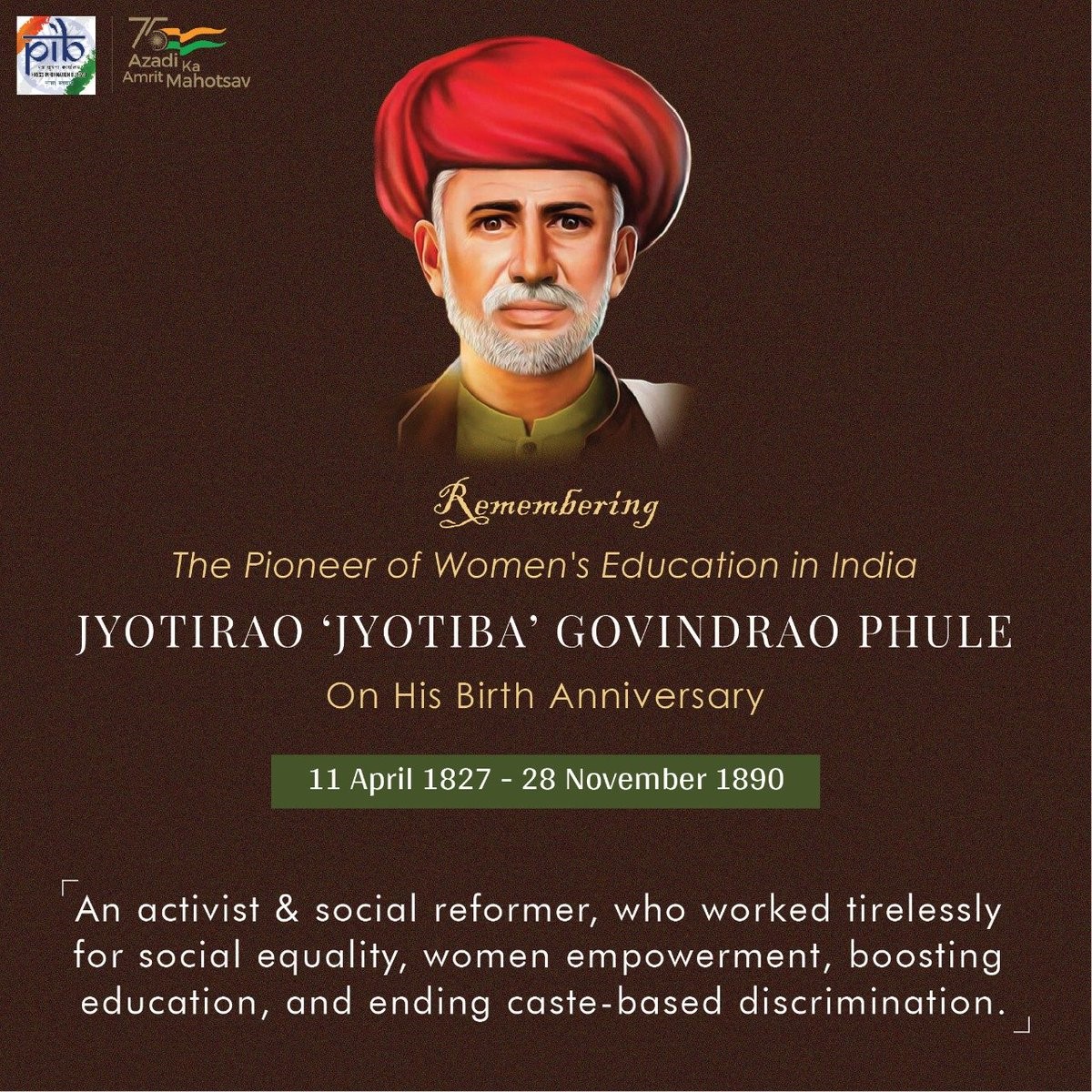Jyotiba Phule: Pioneer of Social Justice and Education
Why in the News ?
Mahatma Jyotiba Phule’s birth anniversary on April 11 reignites reflection on his revolutionary role in fighting caste discrimination, promoting women’s education, and advocating rationalism. His legacy remains deeply relevant in today’s ongoing struggle for equality and social justice.
Phule’s Social Reform and Educational Work:
- Jyotiba Phule, born on April 11, 1827, into the Mali caste, was deeply impacted by caste-based discrimination at a young age.
- Inspired by social reformers and thinkers like Thomas Paine, he challenged Brahminical orthodoxy.
- In 1848, along with his wife Savitribai, he started India’s first girls’ school in Pune, later establishing 18 more.
- He also started night schools for laborers and women and faced backlash from conservative forces.
- Phule founded Satyashodhak Samaj in 1873, a progressive reformist society to counter caste-based discrimination and elitist reform groups.
Views on Caste, Religion & Social Justice
- Phule rejected the 1857 sepoy revolt, viewing it as a return to upper-caste dominance.
- In his book Gulamgiri, he equated the caste system to slavery in America.
- He believed economic empowerment and compulsory primary education were vital for lower castes.
- Phule was against sectarianism and defended religious conversions, including Pandita Ramabai’s.
- In Sarvajanik Satya Dharma Pustak, he rejected religious texts promoting inequality and questioned Brahminical supremacy.
Economic Ideas and Rationalist Thought
- Phule proposed agricultural reforms, military involvement in public works, and better resource management.
- Advocated returning grazing lands to farmers and ending forest department oppression.
- He opposed polygamy, promoting gender justice through logical argument.
- Phule emphasized universal humanity and equality across castes, genders, and faiths.
- His rationalist and secular ideals continue to inspire social reform movements today.




